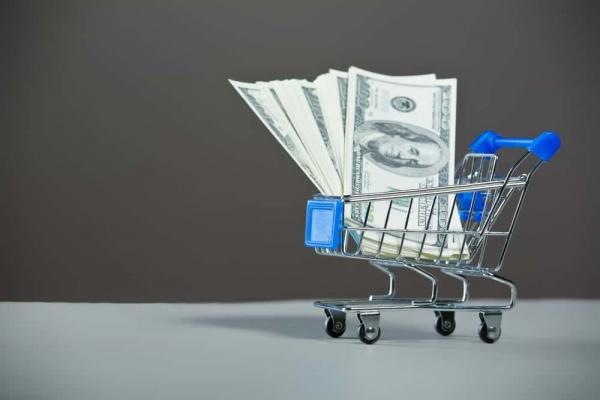
Hungry? Food prices are rising faster than inflation. Have you seen the price of bacon or syrup lately? The breakfast of champions simply costs more these days, but there are still plenty of methods to cut costs.
Location, location, location
According to Kiplinger's "Personal Finance" magazine, where you buy groceries will affect your grocery bill more than any other buying behavior. They found Wal-Mart's grocery section can save you 20 percent more than most grocery stores. American consumers say price isn't everything, however.
"Consumer Reports" did a study to find the grocery stores with the best prices and best customer service. The top pick was Wegmans. In second place, is Trader Joe's and third place is the Southeastern chain Publix.
At the other extreme, the lowest score was earned by Northeastern chain Pathmark. A recent surveyfound that the national drug store chains (Rite Aid, CVS, Walgreens) are up to 36 percent more expensive on grocery-type items than traditional supermarkets. You're definitely paying more for the convenience, so if you plan out a grocery list and avoid impulse or desperation buying at drug stores for your food items, you'll always save money.
Plan your shopping needs in advance
A helpful checklist organized by aisles in a variety of stores can save you time. There are also mobile apps that allow you to scan items already in your pantry at home, automatically adding them to your list.
You don't need to be a math whiz or bring a calculator to the grocery store, just check unit prices when you're comparing products. Stock up on your favorite things when they go on sale. Big warehouse clubs can save you money on bulk items like laundry detergent, batteries, paper towels and pasta. This limits how much time you spend in a grocery store and will also lower your bill.
Restaurants cost six to 10 times more than cooking food yourself. As consumers look for more ways to lower their grocery bill, many are turning to salvage food stores. These are grocery stores that sell dented cans and food that is very nearly expired or past the expiration date. While some shoppers worry about how smart that is, Dr. Ted Labuza, a professor of food science at the University of Minnesota, told "The Atlantic," "Foods can remain safe to consume for some time beyond sell-by and even use-by dates provided they are handled and stored properly."
Grocery stores sell their "unsellables"� to salvage stores where you will typically pay half the supermarket price. Salvage stores are not for the faint of heart, but an option to consider.
For less extreme strategies, you can compare prices at grocery stores in your ZIP code or try a service that provides fresh produce from local farmers.
Remember, you'll pay almost four times more for frozen foods and three times more for prepackaged mixes. Chop and slice your own foods and you'll save about twice what you would pay for the store to do it and sell it to you.
Watch the cash register as your food sails down the moving belt. It is estimated that up to $2.5 billion per year is made in scanning errors.
"Catalina"� deals are when a store advertises a particular product "Buy 10, get $5 back."� Coupons are like cash. Of course, they're usually for higher-priced name brand products. Buying generic will usually cost less than a brand name item with a coupon. Not all generics are created equal, however, so if you have to have Grape Nuts, rather than the generic "Gravel Nuggets,"� then you can stock up on coupons for brand items you can't live without. Remember to look down; more expensive name-brand items tend to be placed at eye-level on the store shelves. Generic versions are usually closer to the floor.
Grocery stores call shoppers who use a lot of coupons"barnacles."� I loved the name so much that I created a "Barnacle Buddies"� email club with some friends who live near me so we can keep each other informed of deals in town. Some coupon divas buy and sell their coupons through Coupon Brokers. When you have expired grocery coupons, send them to military families overseasto use.
The following are a few more tips to help you tighten your belt at the grocery store:
Don't shop hungry. Everything looks more tasty and irresistible when you're starving.
-
Scan your pantry and cupboards before leaving the house to shop.
-
Keep an eye on the weekly store circular.
-
Learn your store's sale cycle (every store has one for when they routinely offer discounts).
-
Buy a freezer for bulk purchases.
-
Support local farmers markets.
-
Ask the guy at the meat department if he has any free dog bones for your pet, rather than buying them at the pet store.
-
Plan your meals in advance.
-
Plant a garden.
-
Drink more water so you buy fewer beverages.
-
Shop when you're in a hurry so you won't be tempted to linger and buy more.
-
Plan meals around what food items are on sale.
-
Sign up for the store's free loyalty card for instant savings.
-
Keep a pantry and refrigerator inventory.
-
Have a leftover night.
-
Make your own mixes and sauce packets.
-
Eat less.
The prices of grocery items are on the rise. But with a little effort and some homework, you can still purchase the groceries you need while staying within your budget.

